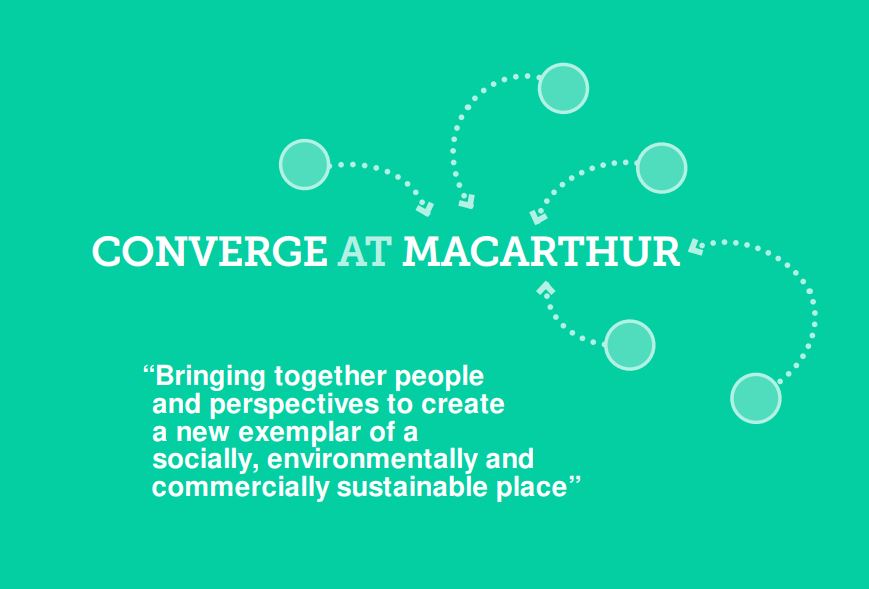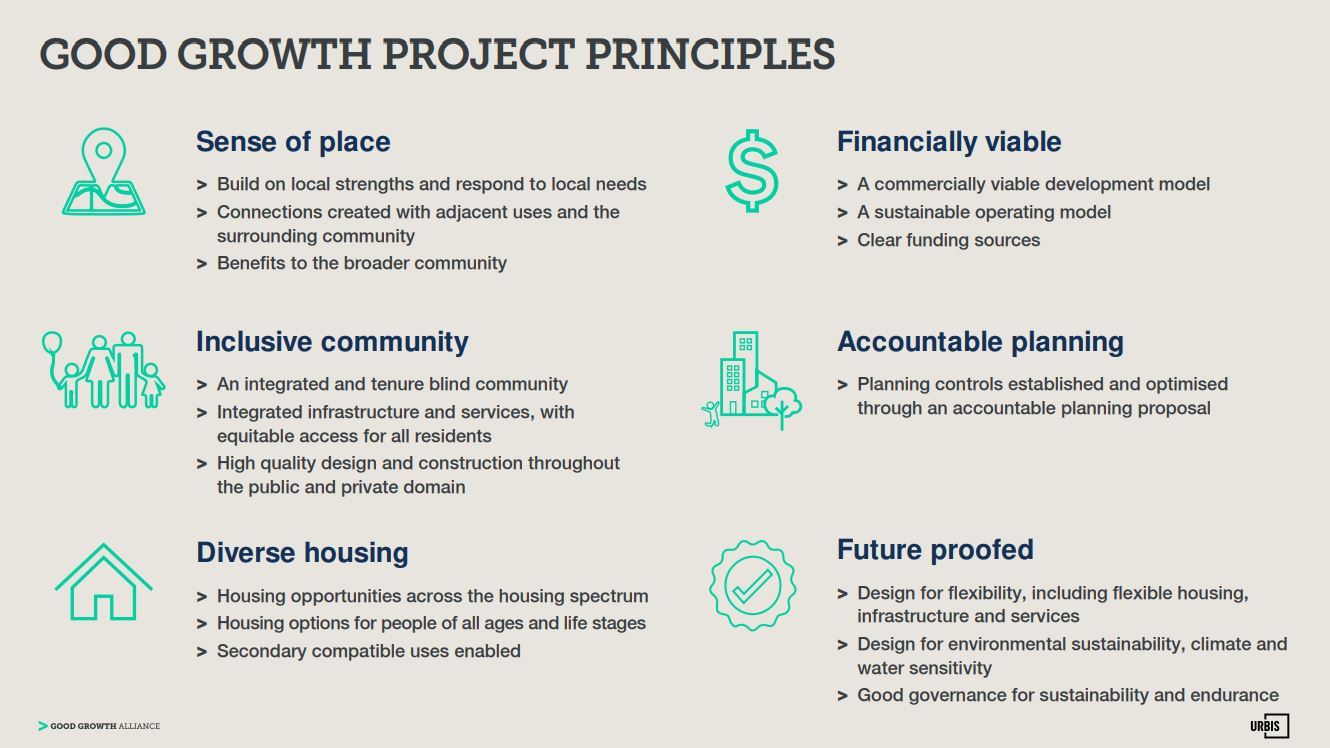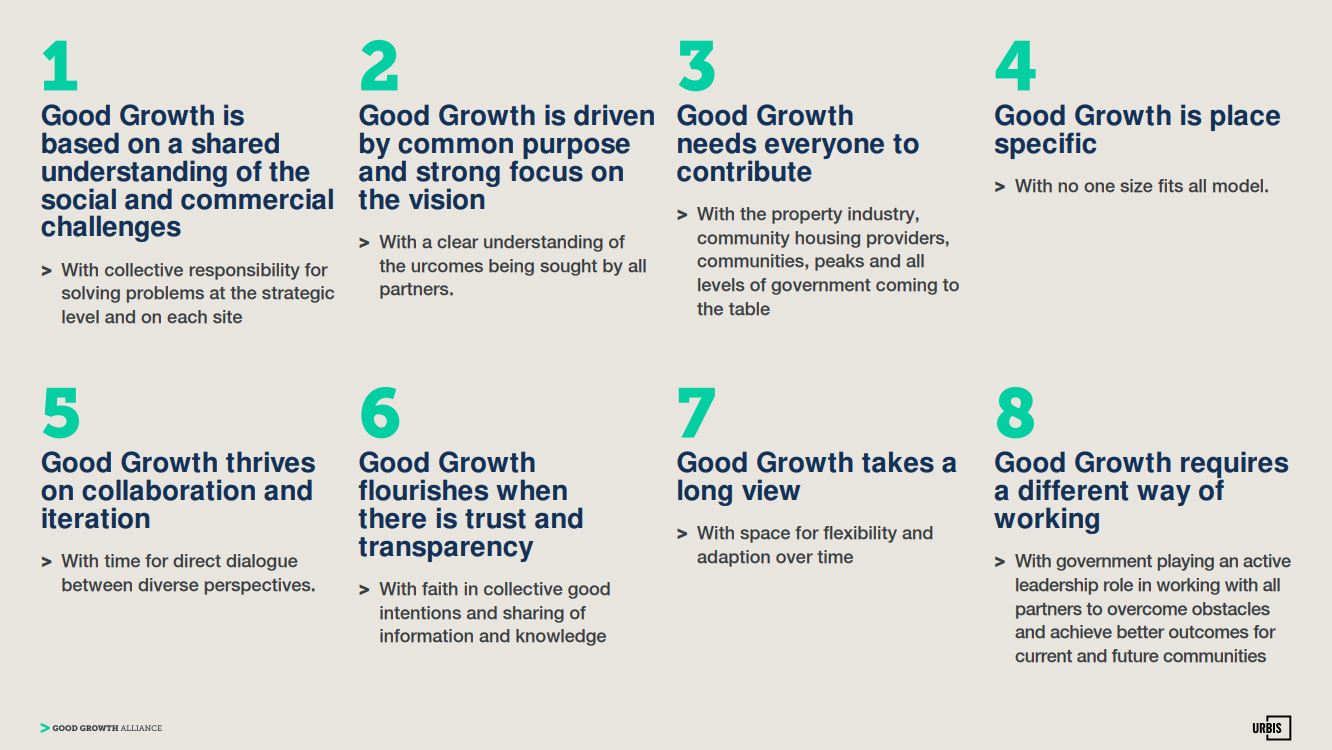At a time when discussions around cities feel more polarised, is it possible to create any kind of consensus on how our growing communities should be housed and who should pay?
These were key questions facing Urbis and eight other city-shaping organisations partnering on a recent demonstration project. The project grew from the Good Growth Alliance between Property Council Australia NSW, Community Housing Industry Australia NSW, Homelessness NSW, Shelter NSW, Sydney Business Chamber and the Committee for Sydney.
For the hypothetical demonstration project, Landcom provided a real site in Western Sydney for the group to work on while UNSW City Futures Research Centre added its academic clout. Urbis played a central facilitation role, as well as bringing urban design and property economics expertise.



